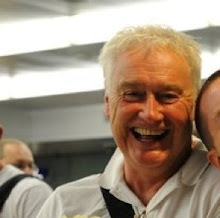
Although set in the remote boondocks of Northern Illinois, on a near-derelict farm, we are not in any new territory with Sam Shephard’s ‘Buried Child’.
The possibility that an outwardly-naturalistic family shelters a dark secret which through the arrival of a stranger is revealed to devastating effect over three drawn-out acts is a theatrical motif so well explored as to have lost its power to shock even by 1979 when ‘Buried Child’ won the Pulitzer Prize for Drama – an accolade which, incidentally, Shepard said gave him less satisfaction than winning a roping contest in the local rodeo.
Shepard’s plays chart the decline of the American dream but more angrily than Miller or Albee, and more autobiographically too: Shepard’s father, a former WWII Air Force pilot, grew up on a broken-down farmstead and supported his mother and brothers from a very young age when the farm business collapsed but later succumbed to alcoholism, living a life that was endlessly disappointing and not able to find another path.
But Shepard is not easy to pigeonhole: his works combine attempts at satire, farce, and cynical verbal attack with images of the Old West, a mourning sense of nostalgia for a lost rural idyll, and a disconnection from familial and spiritual roots.
Possibly Shepard wanted to be a Beckett or a Pinter but merely acquired Pinter’s relentless verbosity and Becket’s obscurantism which makes the play hard to listen to since the dialogue is repetitive and disconnected. This isn’t helped by the variable accents of some of the cast and their propensity to turn upstage on important lines – Tala Gouveia is simply unintelligible a lot of the time.
The ramshackle farmhouse – the location is shown as ‘a squalid farm home’ in the programme - is excellently realised in Martin Thomas’s design, and Howard Hudson’s carefully graduated lighting scheme.
There are some good performances: the play starts well enough with a verbal sparring match between John Atterbury, totally convincing as the old-timer Dodge, arguing with his irritable wife shouting from offstage. His ‘slow’ son Tilde played by Math Sams and grandson Vince by Joe Jameson are also well-studied and persuasive performances of quite unengaging redneck characters.
In Timothy Trimingham-Lee’s lurching production, the actors are required to switch urgently from kitchen-sink drama to Ortonesque farce and back to horror when the parentage of the dead infant is revealed in the too-long-coming third act denouement.
It almost works, but last night’s audience was too readily entertained by the absurd to focus on the dramatic conclusion.
In fact towards the end it was a bit like 'What the Butler Saw' with Vince chasing Bradley round the stage with his prosthetic leg. But too hard to call, the audience was an odd mix of bemused blogcritics and over-volubly enthusiastic friends of the cast: it might have been better if we'd just had a fist-fight ourselves over it.
an edited version of this review appears on The Public Reviews




No comments:
Post a Comment